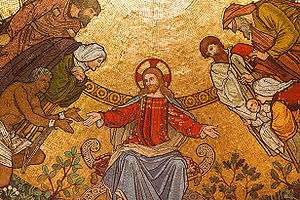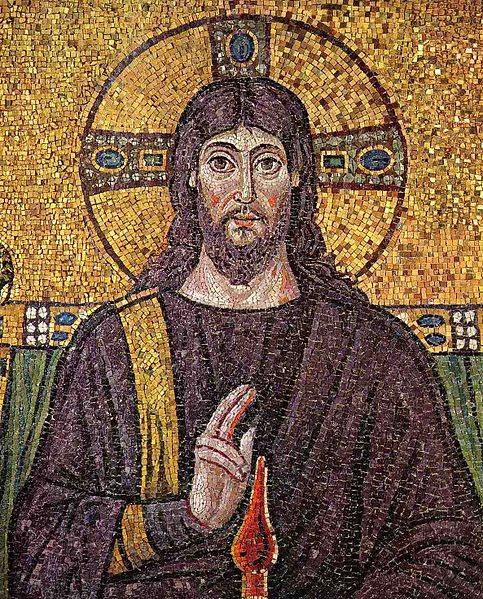Difference between revisions of "Mosaic (art)"
DavidCalman (Talk | contribs) m (CE to AD) |
|||
| Line 1: | Line 1: | ||
| + | [[File:Jesus mosaic.jpg|thumb|Interior of a church in Cambridge, US.]] | ||
'''Mosaic''' in [[art]] is a form in which pictures and designs are built up from thousands of small tiles made of colored glass or ceramics. It was an important art form in classical [[Rome]], in the [[Byzantine]] empire, and, in the form of geometric designs, through the Islamic world. | '''Mosaic''' in [[art]] is a form in which pictures and designs are built up from thousands of small tiles made of colored glass or ceramics. It was an important art form in classical [[Rome]], in the [[Byzantine]] empire, and, in the form of geometric designs, through the Islamic world. | ||
Revision as of 23:08, June 29, 2012
Mosaic in art is a form in which pictures and designs are built up from thousands of small tiles made of colored glass or ceramics. It was an important art form in classical Rome, in the Byzantine empire, and, in the form of geometric designs, through the Islamic world.
Christus, Ravenna.
Romans employed mosaic mainly for the floors of domestic buildings... During the Early Christian period (c.300-400 AD), wall mosaics came into favor with the growth of Christian architecture and Church decoration, and this form was to remain the major form of decorative art during the coming Byzantine era of Eastern Europe (450-1450)... the art of mosaic achieved new heights of creativity and technique, becoming an important feature of Byzantine architecture... from the 8th century onwards, Islamic artists began incorporating mosaics into the decorative schemes of their mosques... in Spain these Moorish mosaics can be seen at the Great Mosque at Cordoba and the Alhambra Palace in Granada. [1]
Mihrab, Mezquita de Cordoba, Spain.


